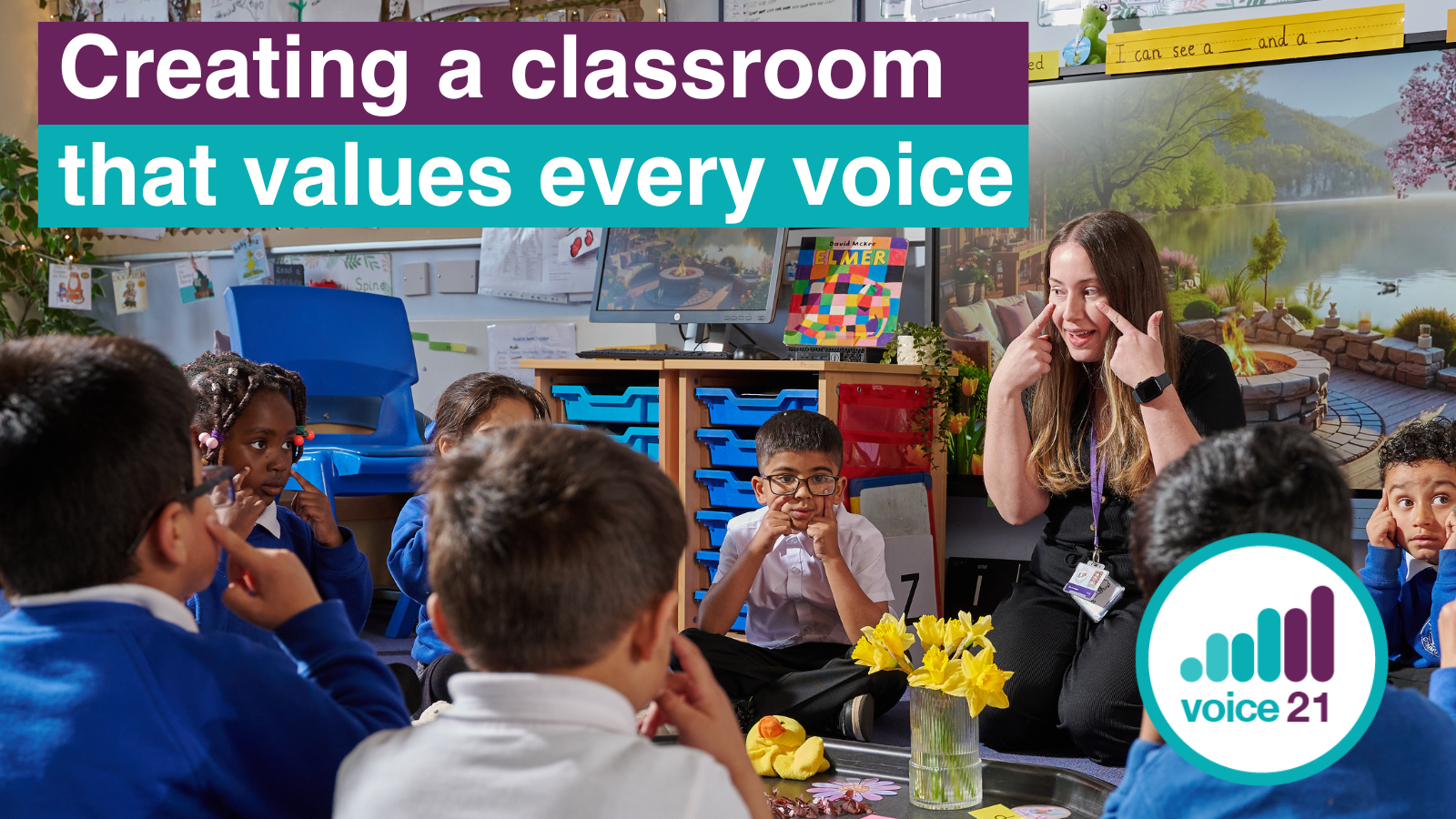
One of our Oracy Benchmarks is ‘Values Every Voice’, meaning that the teacher should support all students to participate in and benefit from oracy in the classroom. They should listen meaningfully to students, encouraging them to develop their ideas further and nurturing a culture in which students do the same.
So how can we create a classroom that values every voice? Check out these five top tips and will be sharing one a day to support you in your classroom practice!
One of the most important ways to make sure that every voice in the classroom is valued is to make sure that students and staff are able to listen, and listen in a meaningful way. There are many ways to support individuals with this. One example is to familiarise students with a listening ladder or create one as a class based on the skills that they think are important to be a good listener. This can then be used throughout the day to guide students on their listening journey.
Another great strategy to encourage active listening is to ask individuals to share back their partner’s ideas following paired or small group work. By having the responsibility of listening to what their peers are saying and feeding it back to a larger audience, they are more likely to actively engage with what is being said, rather than simply share their own ideas and ignore that of their partner!
Sometimes the thought of speaking in front of others can be a daunting experience, no matter how familiar, or small the audience is. Thoughts like, ‘What if I get it wrong?’ ‘Nobody really wants to know what I think’ or ‘XXX will say the answer because they always get it right.’ can be intrusive thoughts to even the most confident pupil.
So, how can we help those students to feel like their opinions, thoughts, and ideas matter?
One way is to celebrate contributions, no matter how small, to show that their voice is valued. A great way of framing this feedback can be through the lens of the oracy framework, linking to a specific strand.
Thank you for sharing your ideas so clearly, did anyone else agree with xxx…
You sounded like an expert when you said…
Feedback could even be given relating to the listening that individuals are showing. This may help some students to feel that they are part of a discussion, even if they are not yet ready to share their own ideas.
Throughout that discussion, I know you were listening really attentively. I could tell because of your body language and the eye contact you were giving to the speaker
When we think about valuing every voice, it’s important to remember that oracy doesn’t have to be conducted in English. Language identity plays a huge role in identity development and all languages should be celebrated and shared. To these ends, it is important to involve parents in helping students to continue developing all their languages. They should be encouraged to talk in the mix of languages that is most natural for them at home and parents should know that oracy homework can and should be conducted in the language that is most natural or strongest in the household.
Why not do some activities in class to celebrate different languages such as everyone sharing some words that they know in a different language? You could even hold your own Languages Day in your classroom!
To learn more about EAL students and oracy, check out this blog.
Often students stay silent in class because they don’t have enough to say on a topic or are not confident that what they do know is relevant. Most teachers use a range of scaffolding to set all children up for success in a writing task, and it’s worth thinking of arming children similarly for oracy tasks!
One of the challenges of developing talk is it’s invisible! The abstract nature of conversation can make it difficult for students to ensure all voices are valued equally. Here are a few strategies you can try to make talk visible to help students see every voice.
If you use these strategies in your classroom, we’d love to hear how you get on! Follow us on Twitter (@voice21oracy) and let us know how you get on!
© 2024 Voice 21. Voice 21 is a registered charity in England and Wales. Charity number 1152672 | Company no. 08165798